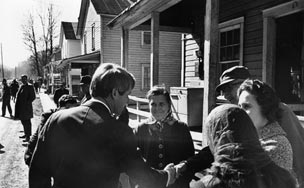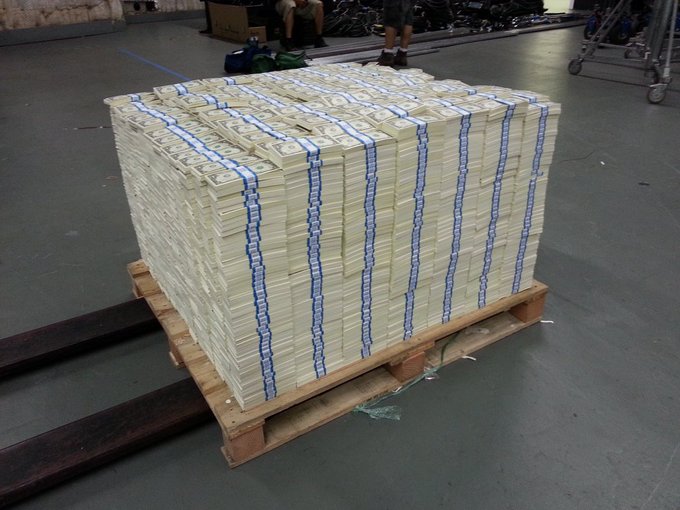February 13, 1828, the Commonwealth’s General Assembly granted Louisville’s 1st city charter. The Act allowed Louisville to establish “free schools.”
February 13, 1865, Mason County native Gabriel Young enlisted in the 5th U.S. Colored Heavy Artillery in Ripley, Ohio, a noted Underground Railroad hotbed during the antebellum years. Gabriel’s son Charles Young, a graduate of the U.S. Military Academy, became the 1st black colonel in the U.S. Army. The Defense Department posthumously promoted Charles to Brigadier General in February 2022.
February 13, 1908, Kentucky State College Cadets (UK), aka State University, Lexington, defeated Central University, 31-20, in State College Gymnasium in Lexington.
February 13, 1925, Auburn native William Floyd Collins, one of Kentucky’s great spelunkers died.
February 13, 1926, Deputy Constable Roby B. Scott, Floyd County Constable’s Office, died in Garrett. A posse later killed the suspect.
On February 13, 1931, Special Deputy Sheriff Rudolph Virchow Phelps, Butler County Sheriff’s Office, died in a vehicle crash on Route 71 (modern-day Route 231) south of Morgantown.
February 13, 1951, the Wolf Creek Reservoir covered the original location of Burnside in Pulaski County when the Tennessee Valley Authority flooded the region to create Lake Cumberland.
February 13, 1951, the following Kentuckians died in the Korean War:
Army SGT Benny C. Atkinson from Rockcastle County
Army SFC Vernon R. Barker from Carter County
Army PFC Jackie A. Campbell from Jefferson County
Army PFC William W. Coffee from Boyd County
Army PVT Jerald W. Henry from Crittenden County
Army CPT Thomas Joyce Jr. from Jefferson County
Army PFC Billy J. Kays from Washington County
Army PFC Robert L. Prather from Jefferson County
Army PFC George L. Sampson from Daviess County
Army CPL Joe R. Scalf from Floyd County
Army PFC Thomas H. Watson from Harlan County
Army CPL Vernon Watson from Morgan County
On February 13, 1952, responding to the shocking scandal that engulfed the UK basketball program in 1951, the General Assembly passed “an act addressing the bribery of participants in professional or amateur games, sports, contests, horse racing, and horse shows.”
February 13, 1967, Army SP4 Carl W. Mueller from Covington died in the Vietnam War.
On February 13, 1968, Senator Robert F. Kennedy visited Hazard during his Appalachia tour. He came one week before he announced his candidacy for President. Kennedy would hold two field hearings soliciting the views of area residents. A one-room schoolhouse in Vortex hosted one and the other in a school gymnasium at Fleming-Neon. In Vortex, Kennedy listened to residents from Wolfe, Breathitt, and Madison counties. Some who spoke noted how hard it was to make ends meet, while others offered suggestions on what the government should do. In Barwick in Breathitt County, Kennedy visited a one-room schoolhouse in session. He spoke with each student individually, asking them what they’d had to eat that day.
 RFK
RFKFebruary 13, 1970, a wave of influenza spread over the nation and found its way to Kentucky. The virus, not yet identified, arrived up in multiple counties. According to one doctor, “hiding out and avoiding people would no protect anyone from the flu germs, there is absolutely nothing you can do but wait for the bug to hit you and then take rest.”
On February 13, 1981, a series of sewer explosions destroyed more than two miles of Louisville streets. The ignition of hexane vapors discharged from a Ralston-Purina soybean processing plant near the University of Louisville caused the explosions. The hexane leaked straight into the sewer system, where it spread into the lines under adjacent homes. It is a miracle that there were no fatalities. Ralston-Purina paid $18 million to the Louisville Metropolitan Sewer District and more than $8.9 million to 16,000 plaintiffs in a lawsuit.
February 13, 1991, America dropped an untold number of bombs on a Baghdadi civilian air-raid shelter, killing at least 300 civilians.
February 13, 1999, in halftime at the UK vs. SC game, the UK retired Bob Burrow #50 and Rick Robey #53 jerseys. Tubby’s Cats beat the Gamecocks 74-40.
February 13, 2000, the Kentucky Historical Society’s Valentine History Party in Frankfort was a big hit with the children who created Valentine’s cards from the 1890s.
February 13, 2009, Congress voted to jolt that nation’s struggling economy with a $787.2 billion stimulus package under the Obama administration, designed to provide tax relief and save 3.5 million jobs. Kentucky received $654 million for education, $118 million for flex funds, $421 million for highways, and $1.3 billion for Medicaid.
On February 12, 2013, the House approved a measure allowing police to collect DNA swabs from people arrested for felony crimes without a court’s permission. The bill eventually died, but the thought is a little scary. Kentucky would have been the 26th state to allow the automatic collection, which is downright petrifying.
On February 13, 2016, the $201,800 El Camino Real Derby (GIII) for three-year-olds ran for Kentucky Derby points, at Golden Gate Fields. Not one of the 13 runners made it to the Derby.
February 13, 2018, EPA Administrator Scott Pruitt finally addressed his 1st class airline tickets to the press. The Lexington native was the 1st EPA administrator to have a 24-hour security detail that always accompanied him, even at the agency’s headquarters in Washington. He added a $25,000 soundproof “privacy booth” to prevent eavesdropping and spent $3,000 to have his office swept for hidden listening devices. Pruitt said he was not involved in the decision to fly first class and all precautions related to security. He couldn’t handle airport encounters. D.C. ran him out of town five months later.
February 13, 2020, several D.C. politicians acted on inside intel related to coronavirus briefings. Senator Burr (N.C.) sold 33 stock holdings worth between $628,000 to $1.7 million, which included stocks in hotel and tourism industries. Three other senators (Dianne Feinstein, James M. Inhofe, Kelly Loeffler) also sold significant holdings around the same time. Sen. Loeffler’s husband also purchased stocks in a major PPE provider four times in February and March.
On February 13, 2022, Western Kentucky Football alumni Tyler Higbee won a Super Bowl ring when LA defeated the Bengals 23-20 in Inglewood, CA. The Rams took Higbee in the 4th round (110th overall) of the 2016 NFL Draft.
On February 13, 2023, Thomas Massie tweeted, “Imagine a pallet with a million-dollar bills stacked on it. Now picture a giant boat with 1,000 of those million-dollar pallets on it. Visualize 100 of those giant boats, each with 1,000 pallets, each with a million dollars. $100 billion is how much we’ve spent on UKRAINE.“
